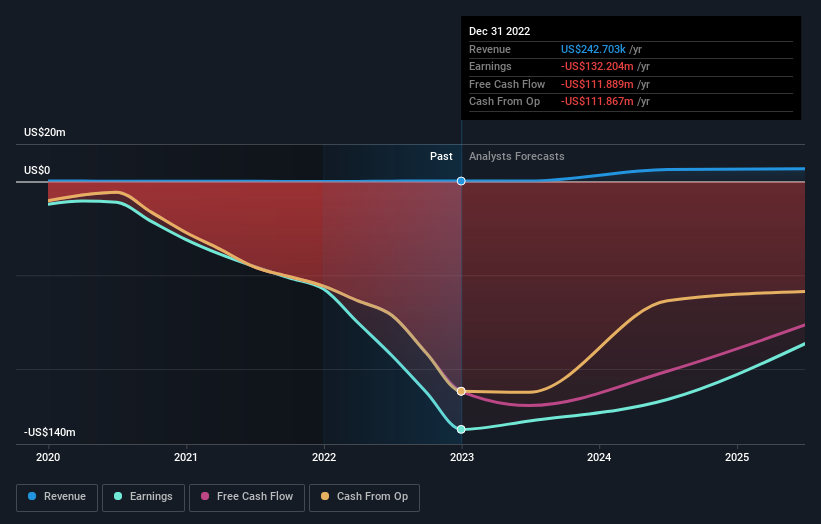Opthea Limited's (ASX:OPT) largest shareholders are individual investors with 40% ownership, institutions own 28%
Key Insights
The considerable ownership by individual investors in Opthea indicates that they collectively have a greater say in management and business strategy
50% of the business is held by the top 9 shareholders
To get a sense of who is truly in control of Opthea Limited (ASX:OPT), it is important to understand the ownership structure of the business. And the group that holds the biggest piece of the pie are individual investors with 40% ownership. Put another way, the group faces the maximum upside potential (or downside risk).
And institutions on the other hand have a 28% ownership in the company. Large companies usually have institutions as shareholders, and we usually see insiders owning shares in smaller companies.
Let's take a closer look to see what the different types of shareholders can tell us about Opthea.
Check out our latest analysis for Opthea
What Does The Institutional Ownership Tell Us About Opthea?
Institutions typically measure themselves against a benchmark when reporting to their own investors, so they often become more enthusiastic about a stock once it's included in a major index. We would expect most companies to have some institutions on the register, especially if they are growing.
We can see that Opthea does have institutional investors; and they hold a good portion of the company's stock. This implies the analysts working for those institutions have looked at the stock and they like it. But just like anyone else, they could be wrong. It is not uncommon to see a big share price drop if two large institutional investors try to sell out of a stock at the same time. So it is worth checking the past earnings trajectory of Opthea, (below). Of course, keep in mind that there are other factors to consider, too.
Our data indicates that hedge funds own 27% of Opthea. That's interesting, because hedge funds can be quite active and activist. Many look for medium term catalysts that will drive the share price higher. Regal Partners Limited is currently the company's largest shareholder with 20% of shares outstanding. Meanwhile, the second and third largest shareholders, hold 8.0% and 6.8%, of the shares outstanding, respectively. In addition, we found that Megan Baldwin, the CEO has 0.9% of the shares allocated to their name.
We did some more digging and found that 9 of the top shareholders account for roughly 50% of the register, implying that along with larger shareholders, there are a few smaller shareholders, thereby balancing out each others interests somewhat.
Researching institutional ownership is a good way to gauge and filter a stock's expected performance. The same can be achieved by studying analyst sentiments. Quite a few analysts cover the stock, so you could look into forecast growth quite easily.
Insider Ownership Of Opthea
The definition of company insiders can be subjective and does vary between jurisdictions. Our data reflects individual insiders, capturing board members at the very least. Management ultimately answers to the board. However, it is not uncommon for managers to be executive board members, especially if they are a founder or the CEO.
I generally consider insider ownership to be a good thing. However, on some occasions it makes it more difficult for other shareholders to hold the board accountable for decisions.
Shareholders would probably be interested to learn that insiders own shares in Opthea Limited. It has a market capitalization of just AU$322m, and insiders have AU$9.5m worth of shares, in their own names. Some would say this shows alignment of interests between shareholders and the board. But it might be worth checking if those insiders have been selling.
General Public Ownership
The general public-- including retail investors -- own 40% stake in the company, and hence can't easily be ignored. While this size of ownership may not be enough to sway a policy decision in their favour, they can still make a collective impact on company policies.
Next Steps:
It's always worth thinking about the different groups who own shares in a company. But to understand Opthea better, we need to consider many other factors. To that end, you should learn about the 3 warning signs we've spotted with Opthea (including 1 which shouldn't be ignored) .
If you would prefer discover what analysts are predicting in terms of future growth, do not miss this free report on analyst forecasts.
NB: Figures in this article are calculated using data from the last twelve months, which refer to the 12-month period ending on the last date of the month the financial statement is dated. This may not be consistent with full year annual report figures.
Have feedback on this article? Concerned about the content? Get in touch with us directly. Alternatively, email editorial-team (at) simplywallst.com.
This article by Simply Wall St is general in nature. We provide commentary based on historical data and analyst forecasts only using an unbiased methodology and our articles are not intended to be financial advice. It does not constitute a recommendation to buy or sell any stock, and does not take account of your objectives, or your financial situation. We aim to bring you long-term focused analysis driven by fundamental data. Note that our analysis may not factor in the latest price-sensitive company announcements or qualitative material. Simply Wall St has no position in any stocks mentioned.
Join A Paid User Research Session
You’ll receive a US$30 Amazon Gift card for 1 hour of your time while helping us build better investing tools for the individual investors like yourself. Sign up here

 Yahoo Finance
Yahoo Finance 

